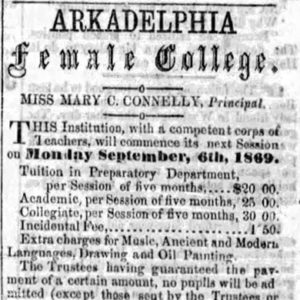 Arkadelphia Female College Ad
Arkadelphia Female College Ad
Entry Category: Defunct: Colleges and Universities - Starting with A
 Arkadelphia Female College Ad
Arkadelphia Female College Ad
Arkadelphia Male and Female Institute
aka: Arkadelphia Institute
aka: Arkadelphia Female Seminary
aka: Arkadelphia Female College
aka: Arkadelphia Female Academy
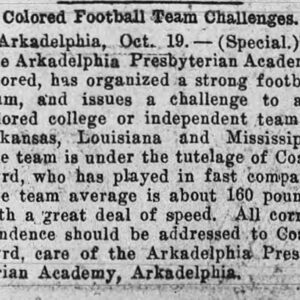 Arkadelphia Presbyterian Academy Football
Arkadelphia Presbyterian Academy Football
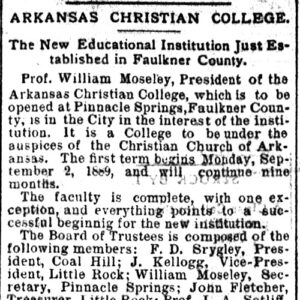 Arkansas Christian College
Arkansas Christian College
Arkansas Christian College
Arkansas College
Arkansas Conference College (ACC)
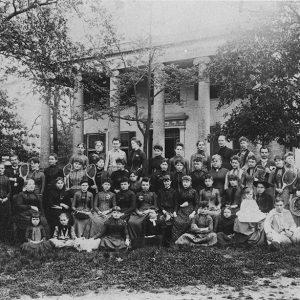 Arkansas Female College
Arkansas Female College
Arkansas Female College
Arkansas Holiness College
Arkansas Normal College
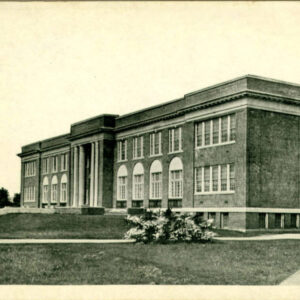 Arkansas State Normal School
Arkansas State Normal School




